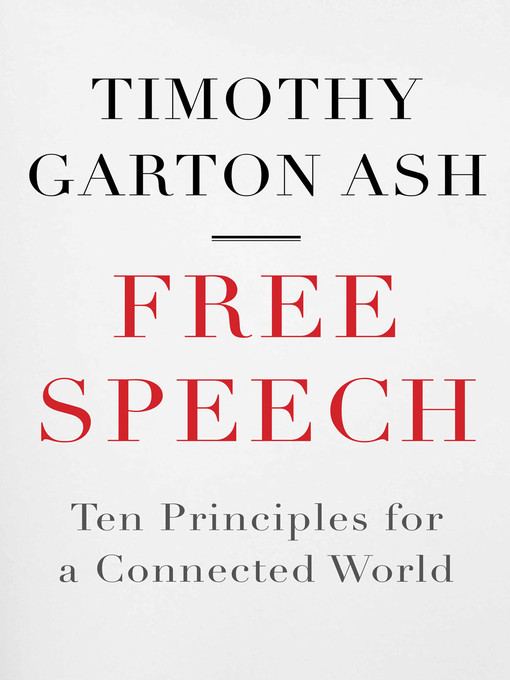
Free Speech
Ten Principles for a Connected World
کتاب های مرتبط
- اطلاعات
- نقد و بررسی
- دیدگاه کاربران
نقد و بررسی

May 9, 2016
Historian, political commentator, and all-around keen observer Ash (Facts Are Subversive) has written a master class in political and historical analysis, assessing the current state of free speech throughout the world. The author proposes 10 principles through which to foster and grow this right in a "framework of civilized and peaceful conflict, suited to and sustainable in this world of neighbors." Almost farcically thorough, the book doesn't even pose the question "Why should speech be free?" until it has thoroughly laid the historical groundwork. Ash's case studies of issues like censorship in China are so up-to-date that one almost misses that Ash is equally comfortable delving into the 19th century philosophy of John Stuart Mill. It's the analysis of the Internet throughout, however, that feels most vital. The author's ninth principle is exemplary: "We defend the Internet and other systems of communication against illegitimate encroachments by both public and private powers," which touches on one of the key debates of our time; and here Ash characteristically gives himself the room to dive deep and explore all his lines of inquiry. Yes, the book is intimidatingly dense. Yes, you need to put in some effort to keep up. And yes, it is without a doubt worthy of your efforts.

April 1, 2016
A field guide to the challenges of setting standards for free speech in a "cosmopolis" of diverse cultures. Working from a classically liberal standpoint, noted political analyst Ash (Professorial Fellow/St. Antony's Coll., Oxford; Facts Are Subversive: Political Writing from a Decade Without a Name, 2010, etc.) sets forth 10 principles to guide consideration of speech policies by governments, corporations, and other institutions. His aim is to encourage the advancement of "more and better free speech" and a well-considered discussion of "where the limits to freedom of expression and information should lie in important areas such as privacy, religion, national security and the ways we talk about human differences." While not concerned exclusively with the Internet, the author points out that it has brought all of humanity into immediate contact with one another, vastly increasing the possibilities for both mutual understanding and explosive strife. He gives particular attention to such problems as information access within closed societies like China and the "assassin's veto" threatened by Islamic extremists. The book's particular strength is that Ash delves into each of his proposed principles in extensive detail, meticulously examining the complexities inherent in each and the difficulties involved in articulating principles comprehensible and potentially applicable within and across political and cultural boundaries. Regrettably, an indulgence in marginal or purely illustrative issues occasionally creates unnecessary length and density. Ash's principles are a basis for discussion, not a coherent program. He is generally content to explore the issues without attempting to resolve them into specific policies, in part because different nations and cultures will have to accomplish this in their own ways. Their value lies in the possibility that in open societies, "international standards and international comparisons...can have traction, especially when amplified through free, diverse media," while elsewhere, they may encourage individuals "to engage, in their own languages and contexts, with more intransigent compatriots or coreligionists." A thorough and well-argued contribution to the quest for global free speech norms.
COPYRIGHT(2016) Kirkus Reviews, ALL RIGHTS RESERVED.

























دیدگاه کاربران